Where’d You Catch That Fish? The Infamous Spot-Burning Debate
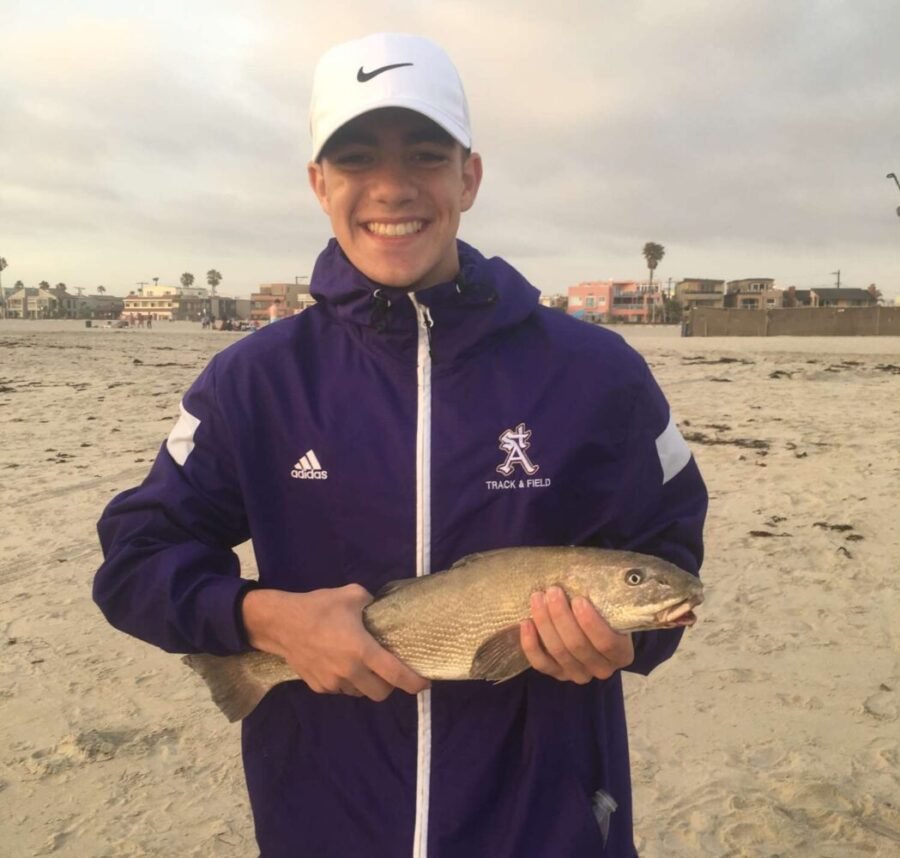
Spot Burning
The topic of sharing spots with other anglers or posting photos of quality catches/outings while exposing the background and therefore location of your catch has been one of much controversy. As social media has evolved and begun to play a prominent role in angling communities, the controversy has only intensified.
What Is Spot Burning?
When it comes to fishing, some anglers take spot secrecy and intel sharing very seriously. Spot burning occurs when an angler exposes the location of a good fishing spot to a large number of people. Usually, this occurs through social media or similar media platforms that have a large reach in terms of audience.
However, word of mouth can certainly result in spot burning. Whichever way it happens, the perceived result of spot burning is that more anglers then crowd your spot and overfish the area.
In this article, I won’t tell you what you should/shouldn’t do when it comes to sharing fishing intel and photos, but rather, I’d like to shed light on the implications of exposing fishing spots.
Starting From Scratch
You’ve put in countless hours exploring all of your local beaches. You’ve covered some 70 miles of beach and of those 70 miles, you’ve fished the majority of those areas more than a handful of times. You’ve worked hard to find your best fishing spots and you’d like to make sure your favorite ones don’t become heavily populated, well-known among the angling community, and overfished.
Maybe you’ve been on a mission to find where big surfperch hold. Or maybe you’ve been looking for where the biggest spotfin like to hangout. Heck maybe you’re searching for seabass, halibut, or something completely different. Bottom line, you’re putting in hard work and sacrificing time and effort to accomplish a goal.
Your Time and Efforts Begin to Pay-off
After a few months or even a few years now, your hard work is starting to pay off. You’re consistently catching your target and you might even say you’re dialed. After all those countless hours of exploring, guessing and checking, and grinding it out to learn your local fishery and best practices, you’ve accumulated a wealth of knowledge and invaluable experience.
You know which spots hold which fish and when (to some degree) and going forward, you won’t have to do as much guessing and checking in order to get on a good bite. You have an arsenal of spots and your time and effort spent up front is priceless in the long term.
The Affects of Social Media
Now, let’s say you hop on social media and post a photo of a great catch exposing the background and/or disclosing the location of your favorite fishing spot. Welp, the whole world has just been given the info that you’ve worked so hard for. Except they didn’t do anything for it.
That might be fine by you (at first at least), but two things here. 1.) I’d be willing to bet that mentality of yours will change over time. 2.) It’s not only your spot that you just exposed, it’s someone else’s too.
It’s Not Just Your Spot
This point can be made for whichever side of the argument you’re on. When you find a fishing spot that you fall in love with and you want to keep it to yourself, that’s an unrealistic expectation. It’s not your spot. In fact, many anglers have likely stumbled across it prior to you and many anglers have probably caught bigger and better fish than you have while standing exactly where you stand.
But that’s okay. It’s not their spot either. It’s there for anyone and everyone to discover. So while you can’t have it to yourself, you should also understand that this spot might mean just as much to someone else as it does to you. That said, what you choose to do with your new-found intel will impact the many other anglers who care deeply about that fishing spot.
Next time you go to post about a noteworthy catch or session, put yourself in the shoes of one of the many (or few) anglers who also worked very hard to find that honey hole. Know that you’re now making a decision for not only yourself, but for him as well… and for everyone else who’s worked so hard to find that spot.
Where’d You Catch That Fish?
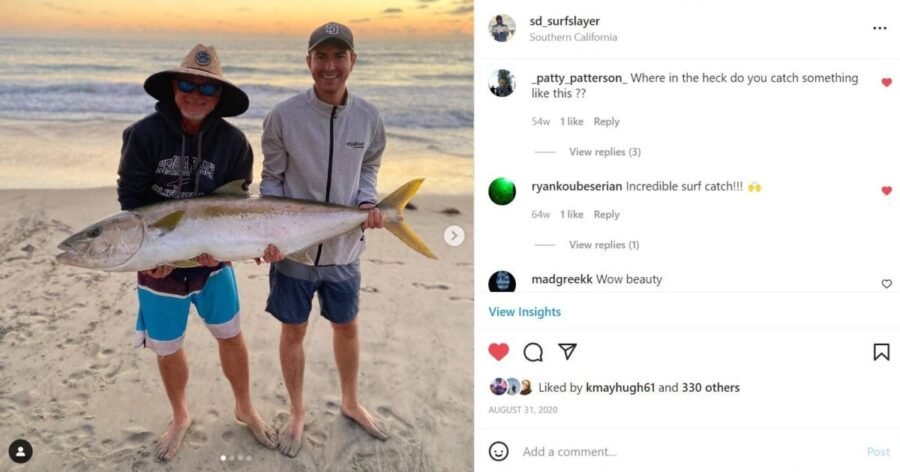
Alright let’s run a different scenario. Maybe in this scenario you post an image of a great catch on social media. Except you were careful in taking the photo. No background exposure and you keep the catch location a secret. Only problem, people want to know where you caught it.
So they ask – good friends, angling buddies, and even compete strangers. “What beach is that?…Where’d you catch it?” It’s almost inevitable someone will ask (if your catch is something most anglers have to put in work for).
Now that you’re having regular success, other anglers are interested where you’ve been catching these really nice fish. Is it okay to not answer the question? Is it okay to just say it like it is and tell them to find their own spots, put in the hours, and sacrifice their own time and effort?
Should You Share Fishing Intel?
This is where it can get a little tricky. You might have a couple buddies you share all your intel with because they’ve been putting in the work with you. They bounce ideas of you, you bounce ideas off them and everyone’s contributing. This is common in small circles. Maybe you share the intel with them.
What about the not so close fishing buddies but still respectable, good anglers who you’ll fish or talk with here and there? What about the complete strangers? Where do you draw the line?
Tainting the Journey of Discovering Fishing Spots
Have you ever heard the saying, “finding new fishing spots is half the fun”? If you haven’t, I’d encourage you to ponder on that for a moment.
Over the years and especially over these last nine months, I’ve taken that saying to heart. Finding new fishing spots is a huge part of what I love about fishing.
Recently, I had a conversation with a fellow angler who figured out white seabass a few years back. I had this conversation just after I landed my first seabass. I recall one specific memory of when he made a trip down to fish in San Diego County. We had planned to connect if our schedules lined up and although we couldn’t connect, he had really good success while he was here.
So what did I do when he told me of his success? “So was it at this beach or the other one?” He decided to not tell me about his new-found intel and I didn’t dispute it. But more than that, in this recent conversation, I thanked him. I pointed him back to that moment and the many other conversations I’d had with him and I said the following.
“I want to say thank you for not telling me too much as I got started on this journey. I realized now that if I had come with you that one day where you killed it in SD, I wouldn’t have explored as much as I have now.”
It wouldn’t have been nearly as meaningful and I would know a whole lot less than I do now.
No One Is Entitled to Know Where You Caught Your Fish
As much as many of us would like to know where you caught your fish, no one can blame you for not disclosing the catch location. So, if you’re hesitant about hurting someone’s feelings, don’t be. You worked long and hard to achieve the knowledge, experience, intel and now quality catch(es) that you’ve achieved. If they want to learn how to achieve what you’re doing, they can spend the time to do so. After all, you did.
At times, it can feel like a slap in the face when someone asks the dreaded question, “What beach?” The first thing that comes to mind? How many skunks did I have prior to getting here? How much time have I committed to this in order to find that answer you want… a lot and a lot. When you look at it from that angle, your perspective might start to change? And I’m not saying it’s wrong to ask, it’s almost the common angler’s natural instinct.
Is it Okay to Ask Where a Fish was Caught?
If you haven’t caught on yet, this is America… you can say/ask whatever you please. I’m guilty of it as well. If I see something that peaks my interest, be it some really juicy structure or an intriguing catch, I might ask for the intel. But almost always, if I ask, I make it very clear, often explicitly stating, they have no obligation to tell me and if they’d prefer to not even respond, I totally understand and support their decision.
It’s up To You
While no one but you is entitled to your fishing intel, it’s your decision to share with whomever you want. It’s your info that you came across freely, so do with it what you want. But it’s never a bad idea to think before you speak.
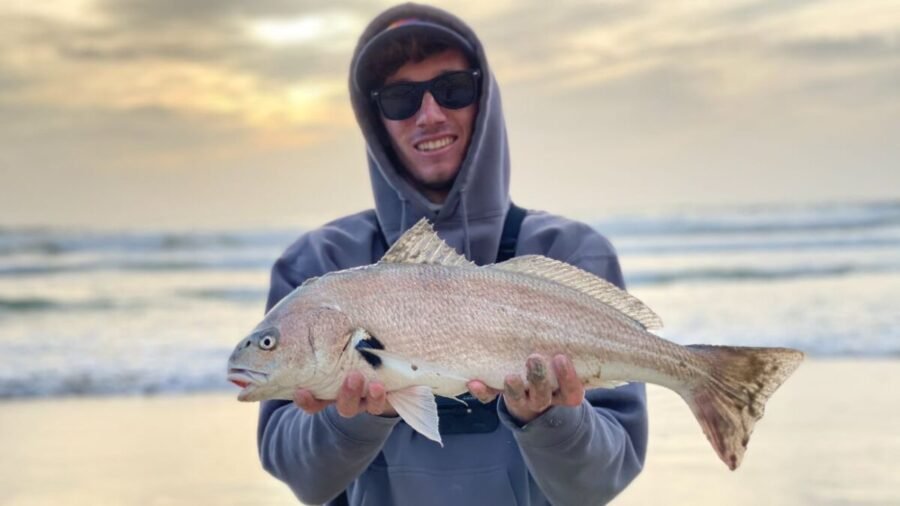
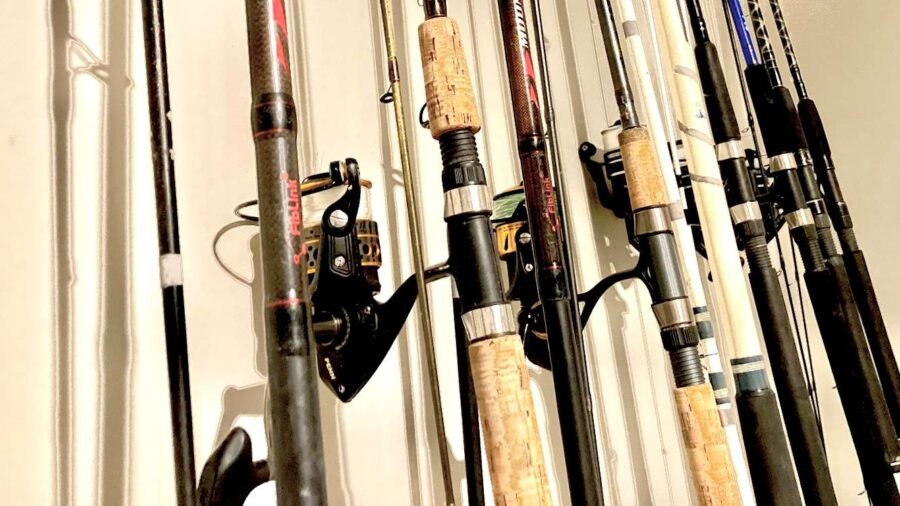
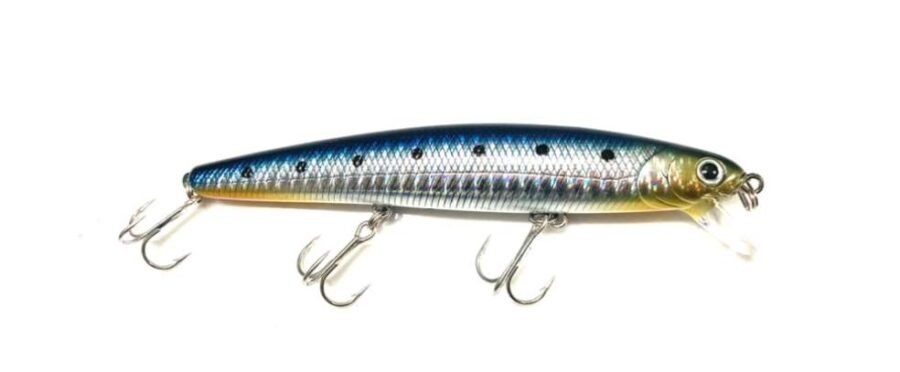
Hi nick, I totally agree with you and I’ll take it to another level never miss a good chance to shut up… lol
Have a great week my friend ✌
That is a great saying lol.
Hi Nick, with that being said can you recommend an area for surf fishing that is relatively accessible and not overcrowded with beach goers?
Thank you
Matt
Hey Matt, unfortunately, I cannot. It’s kind of along the same lines. Everybody wants to find that spot you just described. If everybody new of it, it would be overcrowded. Which is why many beaches become “overcrowded”.
Hope this makes sense. Best advice is to start exploring. Some things that have helped me are google earth, a bike ride along our coastline at low tide, and trying countless areas as I endlessly explore So Cal.
Nick.. thanks for saying it so well.. I was half expecting to read what I always say to people who ask where I caught a trophy… the answer is ALWAYS.. “ right in the lip!” I find it helps ease the pain of them getting shut down. And I don’t have a problem asking either. If someone wants to share, asking is okay.
I’m reminded of a honey hole that produces limits of landlocked silver Salmon when the time is right.. I brought a “friend “ there once, and came back the next day to find him with five friends shoulder to shoulder crowding the narrow spot.. that experience changed my perspective.
I’m a little curious.. I have asked about your guide services.. that must be difficult sometimes for you to divulge lifelong intel for a payday.. we will meet someday soon. Keep up the good work. Mark
I totally know what you mean. And regarding the guide service, I take the utmost of care and pride in guiding my clients to meet and exceed expectations but it’s safe to say I do so while still keeping plenty of secrets to myself.
It can be a mental battle for sure but I’ve learned my ways around it. I don’t want to come off as “sneaky” but I do what I must to sustain and protect the fishery I care about.
Hope this makes sense.
Great article Nick. Seeing the division among anglers with differing opinions on this subject, has been a great source of grief for me. It sometimes turns into real contempt and conflict in the community and that zapped a lot of the fun out of it for me. So it’s a subject I focus on, and I always encourage people to consider the feelings of people on both sides of the argument, and then practice balance. I encourage people to avoid posting spots in public posts, and instead save that communication for private messaging with people you really trust. That way people who want tor share can share, and people who don’t want spots shared don’t even have to see it happening. I think this will prevent a lot of conflict and keep our fishing community far more peaceful, friendly, and fun for everyone. Thanks again for covering this topic!
Thanks for chiming in, Vince. It’s certainly a touchy topic that can ruin even some of the best of days and memories. Like all things, there’s only so much you can do, but it’s good to stimulate some critical thinking and pondering.
Interesting take on the subject. I am of the other school. I have been surf fishing for over 40 years. I will tell you where, how to get there, and what bait to use. There is a lot of coast line to fish if one of my spots get crowded I find another.
At the end of the day it’s up to the angler. Everyone has different experiences and it’s no one else’s decision to make except the angler who caught. It is a good idea, however, to think about the effects of anything you do.
An angler that I respect! Thanks for sharing this Nick, and I hope all anglers come across this article, sooner than later. Then the mutual understanding will be there.
In fact, I was told of a spot from a well known angler (and it matches the pics and videos), who is dialed in that spot, though I will not venture to that spot unless I am invited to fish with them.
Thanks again Nick!
Absolutely! Thanks for showing support and tight lines out there.